| Tommy: Notes and Quotes |
| Pete Townshend: I have tended to reinforce the view that I started to write what eventually became Tommy out of pure desperation. That's only partly true. I did know that aiming to serve the young men in our audience wasn't going to work any more, which worried me. But having been in California recently, I also knew that pop audiences would begin spiritual searching, as I had. I could write stories and clearly see theatrical dramas in my imagination. Whether I could relise them was still to be tested. But I began thinking about a project that I wouldn't allow anyone to divert. (138) |
| One of the important documents I referred to while writing Tommy was a diagram I had sketched of the beginning and end of seven journeys involving rebirth. I was attempting two ambitious stunts at once: to describe the disciple/master relationship and, in a Hermann Hesse-style saga of reincarnation, to connect the last seven lives of that disciple in an operatic drama that ended in spiritual perfection. In 'Deaf, Dumb and Blind Boy" I borrowed from Mehere Baba's teaching to underpin ideas I'd been playing with during the previous year of psychedelia. |
| Each time the child/disciple Tommy is reborn, he retruns with new inner wisdom, but still his life is full of struggle. Since the boy's ignorance of his spiritual growth is a kind of disability, I decided my deaf, dumb, and blind hero could be / autistic. This way, when I wanted to demonstrate the glorious moment of his God-realisation, I could simple restore to my hero the use of his senses. It was a good plan; the boy's sensory deprivation would work as a symbol of our own everyday spiritual isolation. (146-147) |
| Townshend, Peter. Who I Am: A Memoir. New York, Harper Perennial, 2012. |
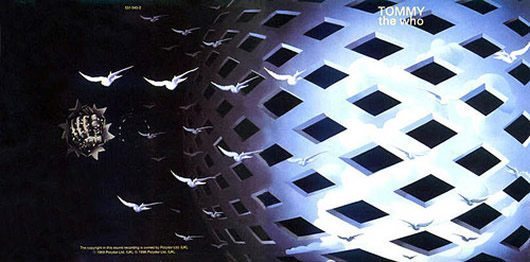 |
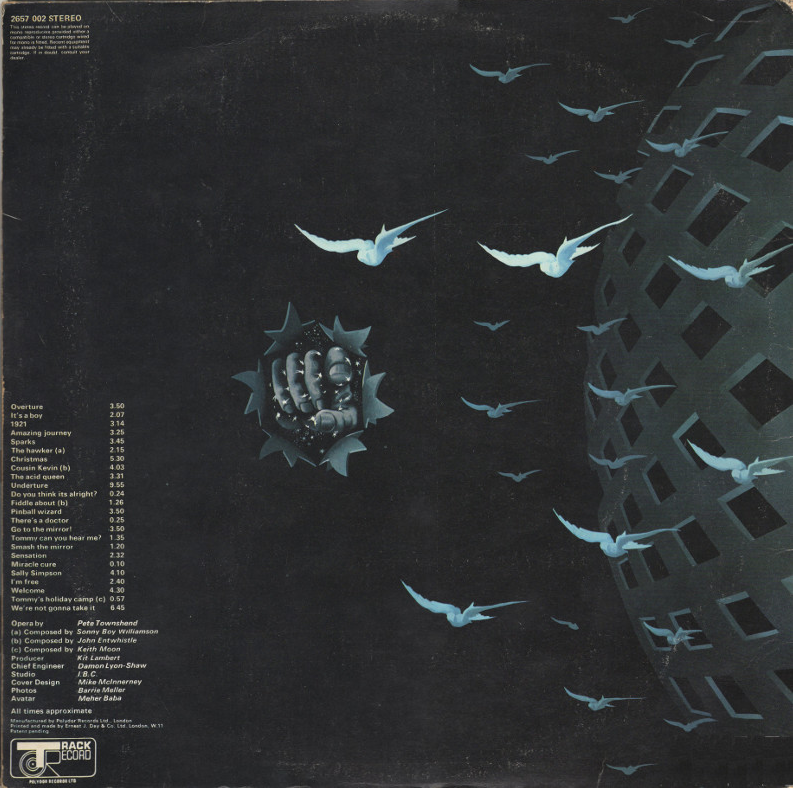 |
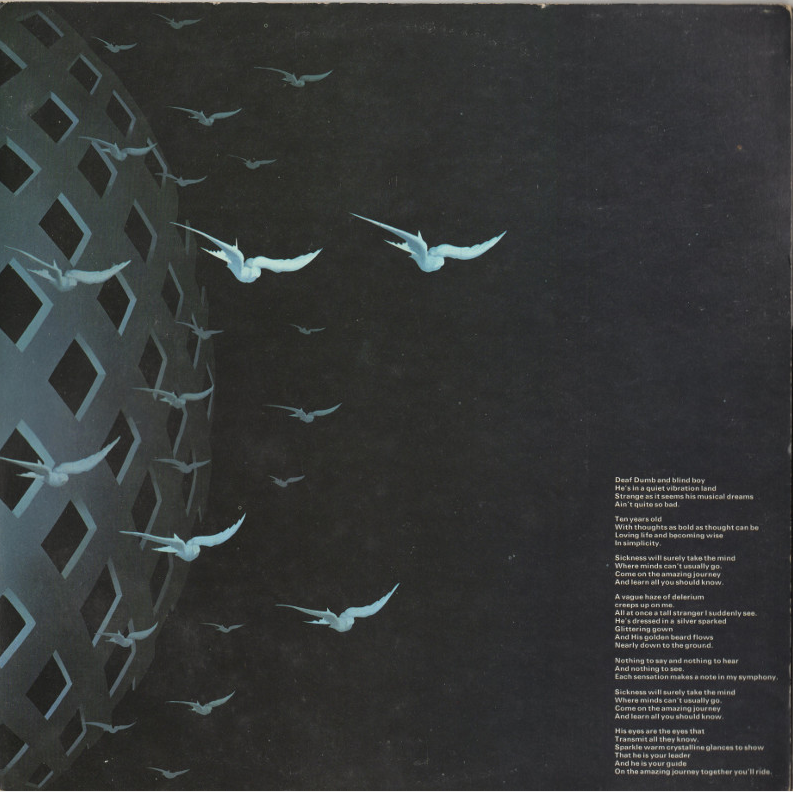 |
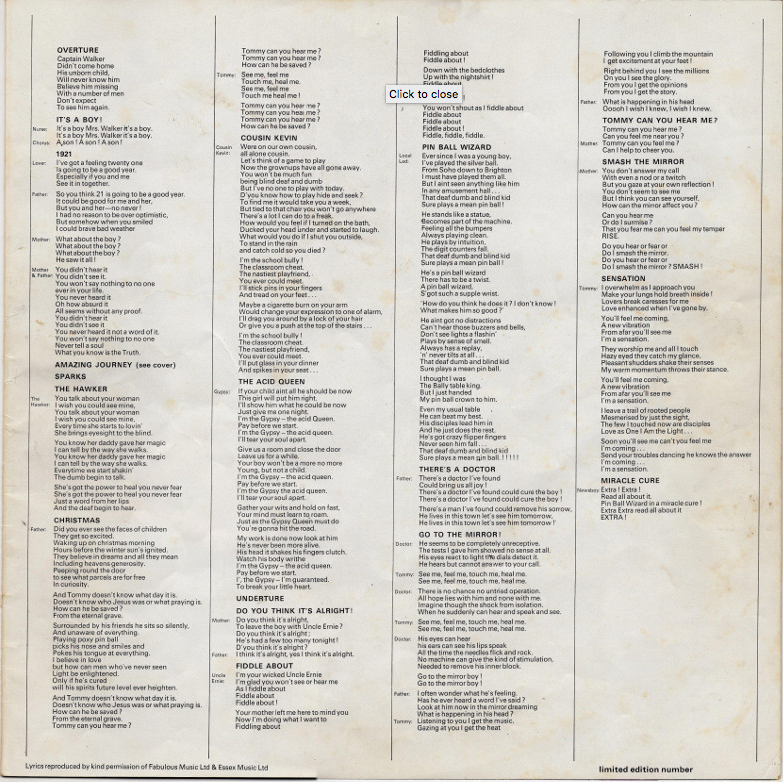 |
 |
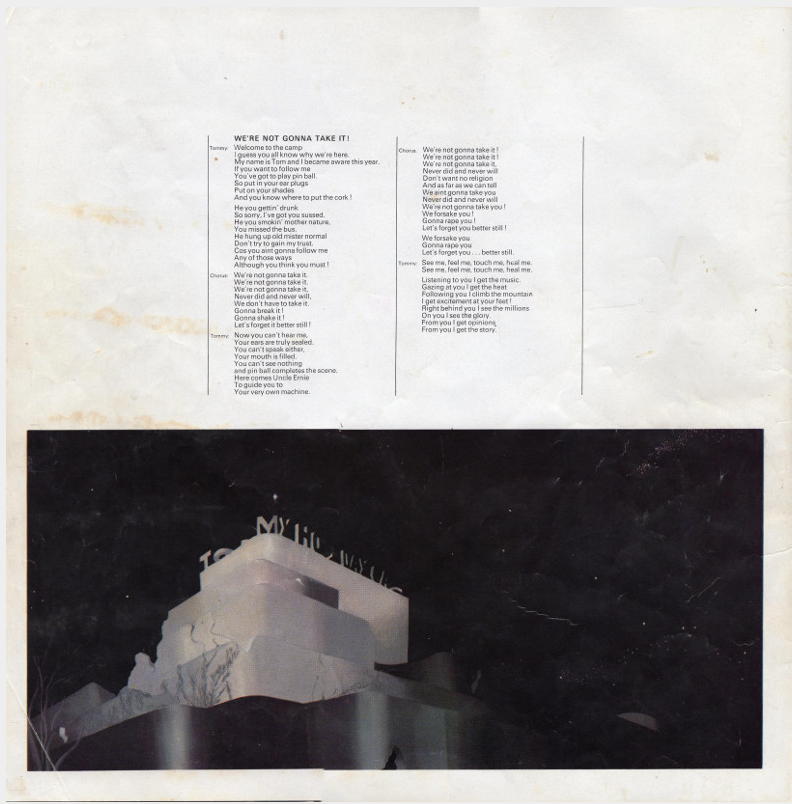 |
| |
| |
|
| Schedule |
|
26 November, 2017
|





